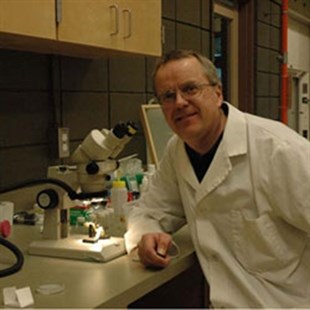
Thompson Rivers University researcher Dr. Rob Higgins believes residents are mistaking a common local ant species for an invasive species recently discovered in Naramata.
Image Credit: Dr. Rob Higgins
May 04, 2015 - 11:51 AM
PENTICTON - A beneficial native species of ant is being mistaken for an invasive species that doesn’t, according to a Thompson Rivers University researcher.
Following an InfoNews story on the European fire ant last week, several people have taken to social media to express fear those ants have taken up residence in their neighbourhood. University researcher Dr. Rob Higgins noted the similarity between the native thatching ant and the European fire ant.
Higgins discovered European fire ants in Naramata in 2013 and is currently working on a plan to eliminate the invasive species in that community. As far as he knows, Naramata is the only area in the interior of the province where the ant is found, as they prefer the wetter climate of the coast.
The difference between an ant bite and a sting may not be apparent to most people.
“Fire ants are tough to identify and many people confuse them with thatching ants which are native and tend to bite, not sting,” Higgins noted in an email.
“I was getting a couple of emails a day a couple of weeks ago with pictures of thatching ants. Thatching ants are quite good for the environment especially by removing pests from trees, but their aggressive nature and fairly large size can cause concern for some people,” Higgins said.
While it is possible people are seeing European fire ants, Higgins said it is unlikely. He thinks they are probably seeing thatching ants, which are quite common.
“Near Oliver there are some harvester ants, that can sting. They are quite rare and are in need of protection, as they are only found south of Oliver,” Higgins said.
To contact the reporter for this story, email Steve Arstad at sarstad@infonews.ca or call 250-488-3065. To contact the editor, email mjones@infonews.ca or call 250-718-2724.
News from © iNFOnews, 2015